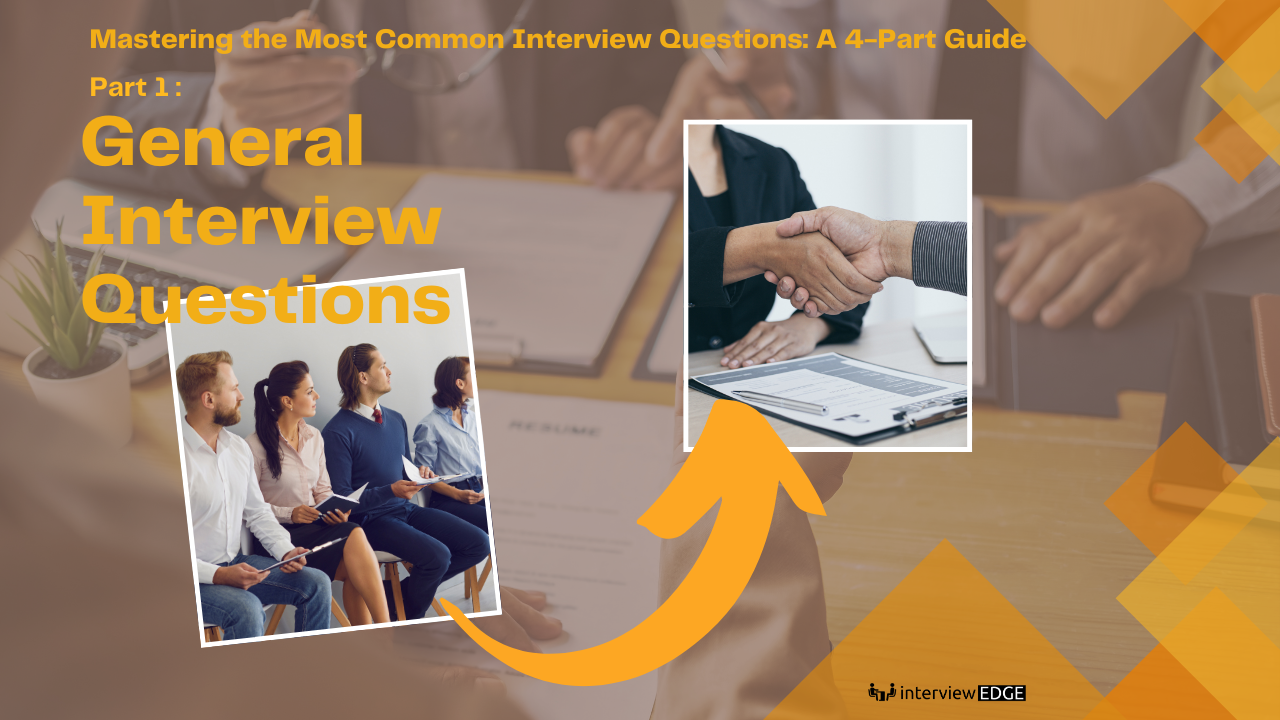
The first few minutes of an interview are super important. They set the tone for the rest of the conversation and help the interviewer form an opinion about you. No matter what job you’re applying for—corporate, government, or startup—there are some questions you’ll almost always hear.
This is the first part of our four-part series on acing interviews. Here, we’ll cover six common questions that interviewers ask to understand your background, motivation, and whether you’re a good fit for the role. We’ll also give you simple strategies and examples to help you answer them confidently.
1. Tell me about yourself.
This is usually the first question, but it’s not an invitation to share your life story. Instead, keep it short and focused on your work, skills, and goals. The best way to structure your answer is:
- Present: What you’re currently doing.
- Past: A quick look at your relevant experience.
- Future: Why this job excites you.
Example:
✅ For a fresh graduate applying for a bank job:
“I recently completed my MBA in Finance and did an internship at ABC Bank, where I worked on credit analysis. Now, I’m looking for an opportunity to apply my skills in financial management at a growing organization like yours.”
✅ For someone applying for a government job:
“I studied Political Science at Delhi University and have been preparing for civil services. I’m passionate about policymaking and want to contribute to public service in a meaningful way.”
2. Why do you want to work here?
This question checks if you’ve researched the company and if your career goals align with theirs. A strong answer should include:
- What you know about the company.
- How your skills match the job.
- How this job fits your long-term plans.
Example:
✅ For an IT company like Infosys:
“I admire how Infosys focuses on innovation and technology. I have experience in software development, and I believe my skills can contribute to your exciting projects while I continue to learn and grow.”
✅ For a government job at ONGC:
“ONGC plays a key role in India’s energy sector. As a mechanical engineer, I’m excited about the opportunity to work in field operations and contribute to a company that impacts the country’s energy security.”
3. What do you know about our company?
This question tests how much research you’ve done. The best way to answer is:
- A quick summary of what the company does.
- Any recent news or achievements.
- Why you’re interested in working there.
Example:
✅ For an e-commerce company like Flipkart:
“Flipkart is one of India’s top online shopping platforms. I recently read about your expansion into quick deliveries, which shows how you’re adapting to customer needs. I’d love to be part of such an innovative company.”
✅ For a teaching job at a government school:
“Kendriya Vidyalayas are known for quality education and all-round student development. As someone passionate about teaching, I would love to contribute to such a respected institution.”
4. Why should we hire you?
This is your chance to sell yourself! Your answer should highlight:
- Your key strengths.
- How you can help the company.
- Your enthusiasm for the job.
Example:
✅ For an HR role:
“I have experience in hiring and employee engagement. I’m good at improving recruitment processes and creating a positive work environment. I believe these skills make me a great fit for this role.”
5. What are your strengths?
Don’t just list generic qualities—pick a couple of strengths that relate to the job and back them up with examples.
Example:
✅ For a sales role:
“I’m good at building relationships and convincing people. In my last job, I increased sales by 20% just by understanding customers’ needs and offering the right solutions.”
✅ For a software developer role:
“I’m great at problem-solving. In my previous job, I fixed a major app bug that was slowing down performance, and my solution improved speed by 30%.”
6. What is your biggest weakness?
The trick to answering this is to pick a real but minor weakness and show how you’re improving it.
Example:
✅ For a finance job:
“I used to get nervous speaking in front of a group, but I’ve been practicing by taking small presentation opportunities at work, and I’m getting better at it.”
✅ For an entry-level government job:
“I tend to overthink decisions, which sometimes slows me down. But now, I use time management techniques to stay focused and work more efficiently.”
Final Tips:
✔ Keep your answers short and relevant.
✔ Personalize them for the job you’re applying for.
✔ Show confidence and enthusiasm.
Mastering these questions will help you make a great first impression in your interview. Stay tuned for Part 2: How to Answer Behavioral & Situational Questions—we’ll talk about how to handle real-life job scenarios!

One comment on “Part 1: General Interview Questions – Making a Strong First Impression”